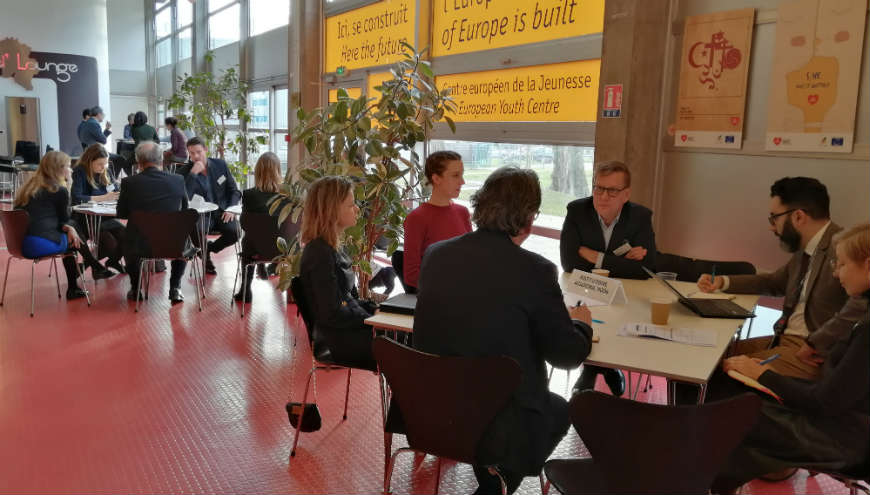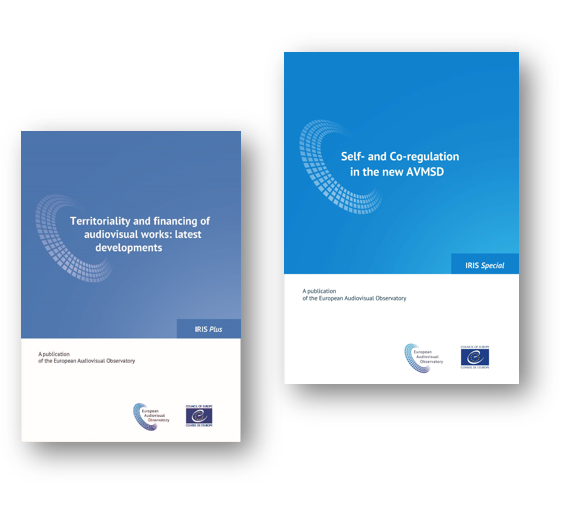In the audiovisual industry, as in other sectors, the increasing use of Artificial Intelligence (AI) is likely to announce a paradigm shift, as it can transform the entire value chain: from content production, programming, and advertising to changing consumer expectations and behaviours due to the abundance of offers and devices and the personalisation of content.
The European Audiovisual Observatory has decided to take a closer look at these effects and devoted the 2019 edition of its annual workshop in December to discussing the opportunities and challenges raised by AI in the audiovisual sector, particularly in the journalistic field and in the film sector.
As in previous years, the workshop brought together a group of ca. 25 high level experts from different sectors, ranging from academics to representatives from the technology industry, broadcasters, VOD providers, film producers, journalists, as well as representatives of film institutes, media regulators and EU institutions.
The discussions were structured around three main sessions: (1) Setting the scene; (2) The impact of AI on the concept of editorial responsibility; and (3) The impact of AI on the quality and diversity of information of the audiovisual offer. A ‘World café brainstorming’ wrapped up the day, during which participants were able to openly discuss and think outside the box on what is on the table today and what we want to achieve.
The workshop was particularly timely also considering that on 19 February 2020, the European Commission published its strategy on digital transformation, which includes a White Paper on AI, which digs into both risks and benefits of this new branch of computer science.
Here you will find the summary of the discussions held during the workshop, including links to the presentations made by the participants.
Opening of the workshop
Susanne Nikoltchev, Executive Director of the European Audiovisual Observatory
Welcome to the European Youth Centre
Rui Gomes, Head of Division, Education and training, EYC
Introduction to workshop
Maja Cappello, Head of Department for Legal Information, EAO
Session 1 - Setting the scene
Chair: Sophie Valais, Department for Legai Information, EAO
Presentation: AI in content production and distribution, Josh Korn Innovation and Technology Policy, Netflix
Presentation: AI in the newsroom, Niamh McCole, Broadcast Compliance Editor, RTÉ Television
Presentation: Policy and regulatory trends on AI in the media, Oliver Gerber, Media Lawyer, Federal Office of Communications of Switzerland
Discussion
Session 2 – The potential impact of AI on news production and distribution
Chair: Francisco Cabrera, Department for Legal Information, EAO
Presentation: AI and news journalism: Unlocking the value for public interest, Atte Jääskeläinen, Professor of Practice, LUT University
Presentation: Legal issues around news personalisation, Sarah Eskens, PhD Candidate, university of Amsterdam
Presentation: AI-generated news and misinformation during election periods, Paige Morrow, Senior Legal Officer, Article 19
Discussion
Session 3 - The potential impact of AI on the production and distribution of works of fiction
Chair: Julio Talavera, Department for Legal Information, EAO
Presentation: Artificially intelligent script analysis and box office forecasting, Ide Claessen, Chief Commercial Officer, Scriptbook
Presentation: Legal issues around the use of AI in fiction, Francisco Cabrera, Department for Legal Information, EAO
Presentation: AI-created work of fiction, copyright protection and enforcement Giancarlo Frosio, Associate Professor, CEIPI, University of Strasbourg
Discussion
World café brainstorming
Chair: Maja Cappello, Head of the Department for Legal Information of the EAO
- What is on the table today?
- What do we want to achieve?
- Which tools would we need?
- Thinking outside the box: what could be done which has not yet been tried?
- What could the Observatory realistically do in that field?

